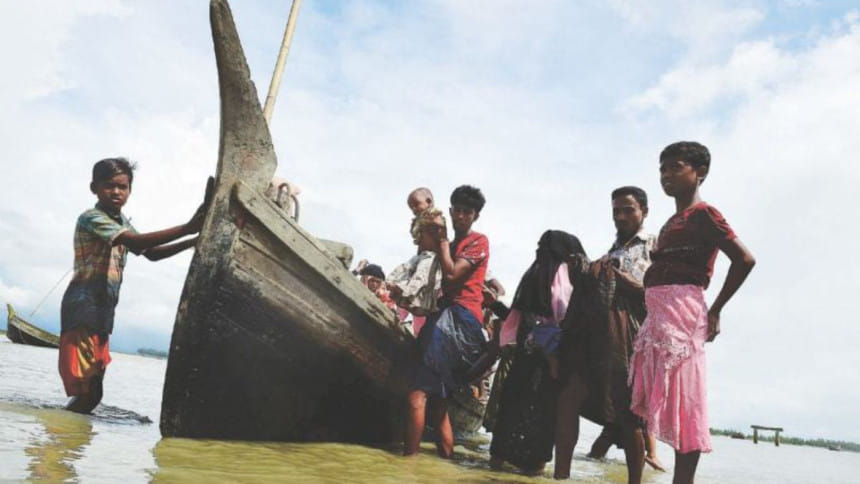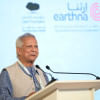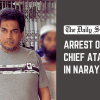Rohingyas and the cost of kindness

It is certain that the present Rohingya sensation will soon die down, and be replaced in public memory by something far more banal.
For now, international aid will flow in, journalists will fly in and young activists will donate from their own pockets. Then, when the headlines wane and public fancy shifts, the latest entrants will become like the old Rohingyas: forgotten inside their ghettos. This is when the real work begins.
Speakers at a seminar organised by the Center for Bangladesh Studies (CBS) reminded everyone that the "illegal Myanmar nationals" (informally "refugees") call for long-term strategic response and long-term commitment.
To start with a recurring theme: the prime minister's bold and generous stance has made citizens proud and garnered global admiration. While it may be dubbed "populist" in the short term, there could easily be unpopular, long-term repercussions. Yet, we remain on the right side of history and that too despite zero support from key allies.
While India, China and Russia have made their positions clear, there could be scope to further lobby the US, the EU and nations in the Middle East. The goals of engagement could be to secure: a) public support, b) aid and relief, and c) technical assistance. International sanctions, deployment of peacekeepers and creation of "safe zones" could be included in a hypothetical "wish list". For a realistic shot at these ends, Bangladesh needs a strategic, proactive approach.
For an example of strategy, consider the phrasing, "Rohingya Shomoshya" (the Rohingya Problem or Crisis). Quite apt, right? Yes, apt–but not very helpful. The repeated pairing of "Rohingya" with "problem" completely overlooks the perpetrators. Alternative phrasing would shift focus back on perpetrators with words like "apartheid", "massacre", "ethnic cleansing" and possibly "genocide". Yes, tragic stories can move hearts, but reports of systematic persecution can move Humvees.
Similarly, using "Muslim" after the ethnonym "Rohingya" seems harmless enough. But it makes light of the fact that Rohingyas' "Muslim-ness" is not the reason for their oppression. Hindus are fleeing to Bangladesh too. Repeatedly identifying them as Muslim reduces complex identity issues into oversimplified religious categories. To the layman, it could start to look like a Buddhist-Muslim conflict. And then the politico-economic motivation behind the crackdown is lost. So, our strategy should be to reinforce that Bangladesh was spurred into action not because of religious affiliations, but because of the unfolding humanitarian crisis.
***
Just as important as phrasing is circulating the right stories and evidence. As a "gateway" country, Bangladesh has ample scope to enrich and give nuance to global media coverage and resulting narratives. It isn't only refugees that are coming across our borders. With them, news, footage, photographs and anecdotes are also arriving at the camps. Many are reaching with bullet wounds, signs of sexual violence and PTSD. Such stories and content constitute material evidence of state violence.
"If you talk to residents of Teknaf or Ukhia, you'll find that many locals resent sharing land, jobs and resources with illegal entrants. The Rohingya are despised by locals, and sometimes outright branded as born-criminals. The mutual animosity can turn explosive when sentiments are manipulated.
Yale University's Genocide Studies director David Simon says, "I would hesitate to say at the moment that there is a genocide [in Myanmar]; although that's mainly for lack of evidence, it's still a plausible conclusion." The world needs evidence to act. Also, if there's to be restorative justice for Rohingyas in the future, collecting and documenting evidence is essential.
The more the stories are heard and the evidence seen, the better. Then the presence of international correspondents, photographers, aid workers, etc., in Bangladesh should be desirable. In fact, authorities would do well to support and facilitate fact-finding and evidence-collecting missions. Bangladesh could also consider a targeted PR campaign to make its case to the world. Nothing can be achieved without international pressure on the Myanmar regime.
For all their stories, the Rohingya are really a voiceless people. When Myanmar authorities describe them, all Rohingyas become illegal Bengalis or Islamist terrorists. Such claims are dehumanising, and typical in the initial stages of genocide. And to think that such malice is endorsed by an illustrious Nobel laureate! You will see why the world might've been slow to comprehend how the champion of democracy could turn into a silent advocate for ethnic cleansing. And that's why, to make the world understand, Bangladesh needs to present more and more evidence.
***
The more difficult and unenviable part of the job, of course, is on ground, inside camps and relocation sites. I am neither trained nor qualified to comment on this. So I'll restrict myself to key points raised by public commentators.
The immediate need is emergency relief: drinking water, grains, baby food, medicines, etc. Multiple development agencies and INGOs are supporting the government in this regard. Individuals and groups have also attempted to distribute relief in the localities. The lesson learnt is that unannounced, untrained activities can do more harm than good. So, it is important to channel private charity through agencies that are trained to do this kind of work.
Key thinkers also talked about forming a national coordination committee. Comprised of multiple ministries, UNHCR, IOM, MSF, ICRC and local NGOs, such a committee could be headed by a senior bureaucrat from MoDMR. It could also include a media cell to work with international journalists and delegates.
Next we come to health and sanitation. Unsurprisingly, cases of HIV-AIDS, polio and malaria have already been reported in the camps. These need to be contained and treated. UNICEF is already supporting mass vaccination efforts for children. But amid the chaos, proper treatment, hygiene, sanitation and/or effective quarantine will not be easy.
It is high time to ask donors and development partners to commit increased funding and long-term refugee management programmes. To this end, an inventory and analysis of refugee management programming in various countries can be a good starting point.
Lastly, let us turn to social effects of a burgeoning refugee population. There are (unconfirmed) reports of violence by locals, especially against unprotected Rohingya women and children. Such behaviour often feeds on locals' insecurity, anti-other sentiments, and vulnerability of the victims. This is why the spectre of escalated conflict cannot be written off completely.
If you talk to residents of Teknaf or Ukhia, you'll find that many locals resent sharing land, jobs and resources with illegal entrants. The Rohingya are despised by locals, and sometimes outright branded as born-criminals. The mutual animosity can turn explosive when sentiments are manipulated.
For example, many have been peddling the claim that fresh Rohingya arrivals caused the recent hike in rice prices. True or false, such claims "otherise" refugees. And if you cannot connect the price hike to massive hoarding (by the president of the Rice Mill Association, among others), you too might blame Rohingyas. When mutual distrust prevails, any piece of propaganda can thus inflame passions and collective hatred.
Locals in the south need to come to terms with their new reality. They need to realise that their country asks of them a measure of sacrifice. Local government officials, law enforcers, NGOs and civil society could play a mediating role here. Public awareness campaigns and moderated dialogues could also be useful. However, these things can take place only with central planning and directives.
As we prepare to meet these national challenges, let us not forget that the latest influx of displaced peoples may not be the last; and that the refugees may not leave any time soon. Either way, Bangladesh has taken a rare, exemplary moral stance in this tragedy. We need to reckon with the consequences, put our heads down and see things through.
Adnan R Amin is a strategy and communications consultant.










Comments